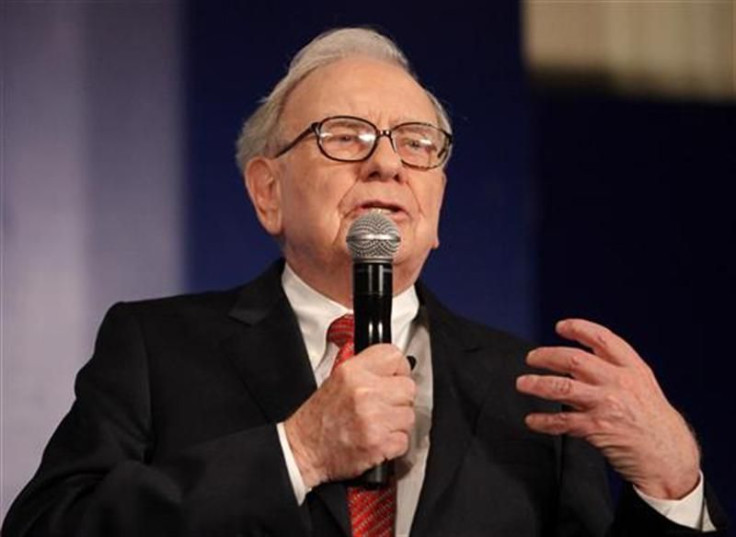Taxing The 1% Gains Traction As More Billionaires Claim They Would Pay More Taxes
Week Sees Two Prominent Moneymen Haltingly Suggest They Should Be Taxed More

During the worst of the Great Depression, when the grinding suffering of mass unemployment and social unrest led many to believe a socialist revolution was in the cards, multimillionaire Joseph P. Kennedy reportedly told President Herbert Hoover that he would gladly give up half of what he owned if he could be assured he'd get to keep the other half.
Some seven decades later, several of the richest men in America this week came out in favor of higher taxes for the wealthy, if perhaps grudgingly and with caveats.
The idea of billionaires accepting that they need to give up more of what they earn to the government has been slowly worming itself into the American political discourse ever since Warren Buffett, the second-wealthiest man in America, noted in an Aug. 14 New York Times editorial how unfair it was that his 17.4 percent personal income tax rate was less than his secretary's.
My friends and I have been coddled long enough by a billionaire-friendly Congress. It's time for our government to get serious about shared sacrifice, Buffett wrote as the conclusion to his essay.
Similar calls have come haltingly since then. In mid-November, a group of California's most powerful billionaires calling itself the Think Long committee proposed an overhaul of the state's tax system. While it did not call for increasing taxes on the wealthy, it did suggest eliminating personal income taxes for those making less than $45,000 and making up for the shortfall with a 5 percent tax on certain services, a moderately progressive system since people consume more services as their income increases.
This week saw two more billionaires hedgingly claim they would accept higher taxes. The first came in a scathing letter by billionaire investment adviser Leon Cooperman to President Barack Obama. While the letter itself was critical of the President's rhetoric and made suggestions that Obama is engaging in class warfare, Cooperman plainly said he would support a re-examination of the tax and entitlement systems in the country and if I end up paying more taxes as a result, so be it.
Several days after that, JP Morgan Chase chief executive Jamie Dimon, who is somewhat notable for defending the excesses of Wall Street banks against criticism, made a speech at an investor conference that touched on income taxes for the wealthy, and said he wouldn't mind paying 50 percent, according to the Dow Jones Newswires.
It's not like all billionaires are running to demand the taxman take more. Cooperman's assertion was not only in a letter that was critical of the government that might actually be raising his taxes, but it came as he was fighting an IRS claim that he owed taxes. Dimon's 50 percent figure came during a diatribe in which, as other media outlets critically noted, he misconstrued the public sentiment behind the ongoing Occupy movement, saying that acting like everyone who's been successful is bad and that everyone who is rich is bad. (He also disingenuously said his federal tax rate was 39.6 percent, which is impossible.)
And it's not like most billionaires even agree they will need to pay more for the good of the nation.
On Nov. 30, for example, billionaire founder of Blackstone Group, Steven Schwarzman, told Bloomberg TV the real problem with the U.S. tax system was that lower-income earners didn't have skin in the game. The assertion means he believes the poorest of Americans should be paying more taxes. Others, like cosmetics empire heir Ronald Lauder, aggressively use tax shelters to deduct hundreds of millions from tax bills, using such clever techniques as donating art pieces of fine art to themselves.
Now if only some of these people would agree to pay more.
© Copyright IBTimes 2025. All rights reserved.



















